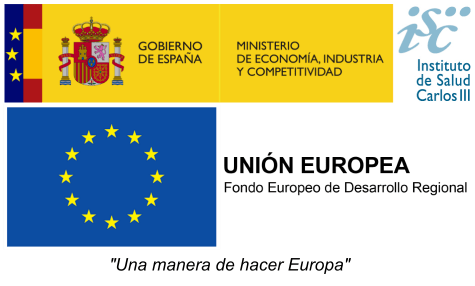Research
Research Lines (DMIL)
Ongoing projects:
Phoenix System (ERC)
IPositron emission tomography (PET) devices make it possible to obtain molecular images of organs and metabolic processes in the human body through the use of radiopharmaceuticals. These devices are used to monitor diseases such as leukemias, neuroblastomas and lymphomas, among others (Read more)
Innva1/2024/72
In Spain, 10 centers dedicated to proton therapy are to be set up, one of these new centers will be located in Valencia, near the La Fe Hospital. This requires meeting a number of challenges, such as accurately determining the dose administered to the patient. We propose the development of a PET prototype dedicated to the brain, with high sensitivity and low cost for its best technological transfer, which allows to verify the dose administered, performing a PET measurement to the patient after the therapy. (Read more)
Imagen Molecular de Alta Sensibilidad (IMAS)
IMAS (highly sensitive molecular imaging) is a recent project in which i3M is actively participating. In the IMAS project, there are two scintillation technologies working towards the ultimate goal: the development of a high-performance Total-Body PET scanner. (Read more)
Metascintillator development and analysis
We are pioneering the development of meta-scintillators, the composite topologies of scintillating and light-guiding materials, arranged to produce a synergistic effect at some step of the scintillation process, from gamma absorption to light detection, combining thus the favourable physical characteristics of their constituting components. (Read more)
ScintoTube. Fabrication and Testing of a Novel PET insert for Simultaneous PET/MRI. 1R01EB029450-01
Dr. Antonio J. Gonzalez has been granted for NIH (National Institute of Health) to run the project ScintoTube in collaboration with the University of Virginia and Bruker. (Read more)
Develpopment of a continuous egdeless crystal pet system for breast cancer (DEEP-BREAST)
In this project we propose to build a novel continuous-scintillator Positron Emission Tomography (PET) scanner devoted to breast cancer diagnostic and therapy follow-up. (Read more)
Inexpensive MRI-PET-Acoustic hybrid system for Cancer Theranostics (IMPACT)
Funded by Generalitat Valenciana under the PROMETEO program. CIPROM/2021/003 (Read more)
Former projects:
4D-PET: Innovative PET scanner for dynamic imaging
Prof. Benlloch has been granted with this ERC Advanced proposal. The main objective of 4D-PET is to develop an innovative whole-body PET scanner based in a new detector concept that stores 3D position and time of every single gamma interaction with unprecedented resolution. (Read more)
HyPET Project
The long term goal of this project, in a collaboration grant from NIH between the University of Washington and i3M, is to develop imaging technology that will replace biopsy as the gold standard for PCa diagnosis and staging. (Read more)
Molecular imaging system for heart diagnostic under stress condition. TEC2016-79884-C2-2-R
In this project we plan to design and build a completely novel cardiac PET system that allows simultaneous PET scanning and patient movement. (Read more)
MindView
i3M coordinates an EU project of the FP7 program, called MindView. This a large project of 4 years timeframe with a strong consortium of 10 partners. The main technology goal of this project is the development of a high resolution PET insert, MR compatible, capable of simultaneous image acquisition, for Mental Disorders studies. The project includes clinical sites such as the Karolinska, the TUM-MED and the Uppsala University, but also referenced companies in this field as SensL, Noras, Bencar or Oncovision. Research institutions also participate as i3M, the Sapienza University and the Brest University.
PROSPET (DTS15/00152)
The main objective of the project PROSPET is to develop a reliable system for the diagnosis of Prostate Cancer (CaP) based on Molecular Imaging (MI). This is a project carried out together with the Hospital La Fe in Valencia. The system to be developed, is based on Positron Emission Tomography (PET) to increase efficiency in the detection and resolution by a factor 10 compared to current PET scanners. The TOF (time of flight) resolution will be approximately 300 ps allowing a significant improvement in the image contrast.



